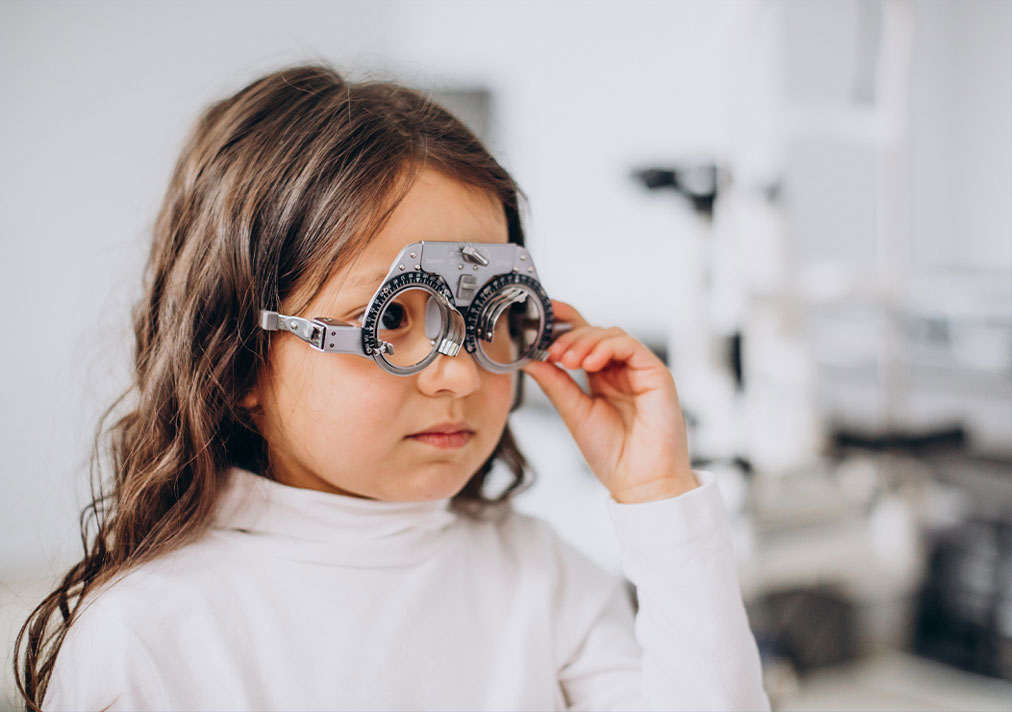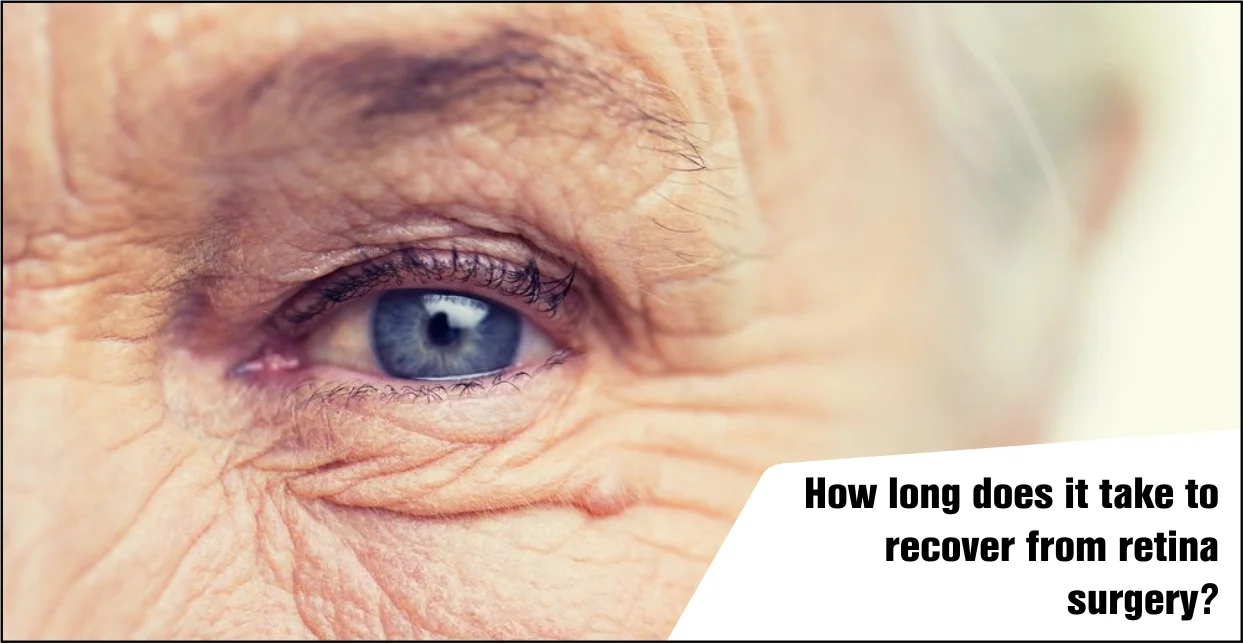Retina surgery is a crucial procedure for preserving or restoring vision, especially when the retina, a thin layer at the back of the eye, is damaged. If you or a loved one is preparing for or has recently undergone retina surgery, understanding the recovery timeline is important. Recovery times vary based on the type of surgery, your overall health, and how well you follow post-operative instructions. Let’s explore the key factors that influence recovery, what to expect at different stages, and how to take care of your eyes during this period. For more consult the expert at Eye Q India.
Types of Retina Surgery
Before discussing recovery, it’s helpful to understand the common types of retina surgery, as recovery times can differ.
-
Vitrectomy
This procedure involves removing the gel-like substance (vitreous) from the eye to treat issues like retinal detachment or macular holes. Recovery can take several weeks to months, depending on the severity of the condition and the procedure.
-
Scleral Buckling
In this procedure, a small band is placed around the eye to help the retina reattach. It’s commonly used for retinal detachment. Recovery generally spans a few weeks, but visual improvement may take longer.
-
Laser Surgery
Laser treatments for retinal tears or diabetic retinopathy have a shorter recovery time, often just a few days to weeks.
-
Pneumatic Retinopexy
This technique involves injecting a gas bubble into the eye to press the retina back into place. The recovery can take several weeks, and strict post-operative positioning is required.
Immediate Post-Surgery Period
After retina surgery, you may feel mild discomfort, redness, or irritation in the eye. Here’s what typically happens in the initial days:
-
Day 1
Most patients return home the same day after surgery. You will likely have an eye patch or protective shield to prevent accidental injury and minimize light sensitivity. Your doctor will provide detailed instructions on how to care for your eye, including the use of prescribed medications.
First Few Days
It’s common to experience blurry vision, mild pain, or swelling. Your doctor may prescribe antibiotics and anti-inflammatory eye drops to prevent infection and reduce inflammation. You should avoid strenuous activities and keep your head elevated while resting to minimize swelling.
Follow-Up Visits
You’ll need to visit your eye specialist within a day or two after the surgery to check the healing progress. These appointments are crucial for detecting any early signs of complications and ensuring that your eye is healing properly.
Recovery Timeline
Understanding the recovery timeline after retina surgery can help you set realistic expectations and plan for a smooth healing process. Here is a detailed look at what you can anticipate during different stages of recovery:
-
Week 1
During the first week, you’ll need to follow specific care instructions to avoid complications. Common precautions include:
- Avoiding strenuous activities: Avoid strenuous activities, bending over, or lifting heavy objects. Physical exertion can strain your eyes and affect healing.
- Posturing for gas bubble surgeries: If a gas bubble was used, you might need to maintain a specific head position for several hours a day to keep the bubble in place.
- Protecting the eye: Use the prescribed eye shield while sleeping to prevent accidental rubbing or pressure.
- Visual Clarity: Visual clarity may not return immediately, and you’ll need to be patient as the eye heals.
-
Week 2–4
As you move into the second and third weeks post-surgery, you should start to notice gradual improvements in your vision. Activities like reading or working on a computer may still cause strain, so it’s best to limit screen time.
- Driving: You should avoid driving until your vision stabilizes.
- Resuming Work: For desk jobs, you may return to work after 2–4 weeks, but those in physically demanding roles may need more time off.
- Reducing Medication: Your doctor may adjust the frequency of eye drops or other medications as your eye continues to heal.
-
Month 2 and Beyond
By the second or third month, most patients can return to their normal activities, but it’s important to continue following your doctor’s advice. Vision should be significantly improved, although full recovery may take up to three to six months depending on the procedure.
- Vision Stabilization: Some patients may require glasses or additional treatments to optimize vision.
- Gradual Resumption of Activities: Start with light activities and gradually increase the intensity. Avoid high-impact sports or heavy lifting until your doctor gives the all-clear.
- Vision Monitoring: Keep monitoring your vision and report any sudden changes or concerns to your ophthalmologist immediately.
Factors That Influence Recovery Time
Several factors can influence the recovery time after retina surgery, including:
-
Type of Surgery
The specific procedure you underwent plays a major role in how long it takes to recover. Minimally invasive techniques like laser surgery heal faster compared to complex procedures like a vitrectomy.
-
Severity of the Condition
The extent of retinal damage or detachment before surgery affects the healing process. More severe cases require longer recovery times and may involve more intensive post-operative care.
-
Age and General Health
Younger, healthier individuals often recover faster. Chronic conditions like diabetes or high blood pressure may slow the healing process. Overall physical health can influence how well your body responds to surgery and heals.
-
Post-Surgery Care
How well you follow post-operative instructions greatly impacts recovery. Avoiding strain, maintaining hygiene, and using prescribed medications are key. Adhering to your doctor’s recommendations helps prevent complications and promotes faster healing.
Tips for a Smooth Recovery
To expedite your recovery, consider the following tips:
- Follow Medication Instructions- Use eye drops or medications as prescribed. They help reduce inflammation and prevent infections, both of which are critical for proper healing.
- Attend Follow-Up Appointments- Regular check-ups allow your doctor to monitor healing and address any complications early.
- Avoid Rubbing Your Eyes- Even if your eyes feel itchy or uncomfortable, avoid touching them as this can disrupt the healing process or cause infections.
- Maintain a Clean Environment- Keep your surroundings clean to minimize exposure to dust or irritants. A clean environment reduces the risk of infections and supports a healthy recovery.
- Stay Hydrated and Eat a Balanced Diet- Consuming foods rich in vitamins A, C, and E, as well as omega-3 fatty acids, can support eye health during recovery. Staying hydrated helps flush out toxins and keeps your body functioning optimally.
- Limit Screen Time- Excessive use of digital devices can strain your eyes and prolong recovery. Take regular breaks if screen use is unavoidable. Consider using screen filters or adjusting the brightness to reduce eye strain.
Potential Complications
While most retina surgeries are successful, some patients may experience complications that require prompt medical attention. These include:
- Increased pain or swelling
- Severe redness or discharge
- Sudden vision loss
- Floaters or flashes of light
If you notice any of these symptoms, contact your eye specialist immediately. Early intervention can prevent further damage.
When Can You Expect Full Vision Recovery?
Visual recovery varies greatly from person to person. For some, noticeable improvement occurs within weeks, while others may take months to see significant results. Remember, surgery aims to stabilize or restore vision, but the outcome depends on the condition of the retina before surgery.
Conclusion
Recovering from retina surgery requires patience and adherence to your doctor’s guidelines. While the timeline varies for each individual, proper care can ensure a smoother healing process and better visual outcomes.
If you’re seeking expert care or have concerns about your eye health, Eye-Q Super-Speciality Eye Hospitals in India is here to help. With a dedicated team of specialists, we provide advanced care for all retinal conditions. Schedule your consultation today and take the first step toward a healthier vision!




